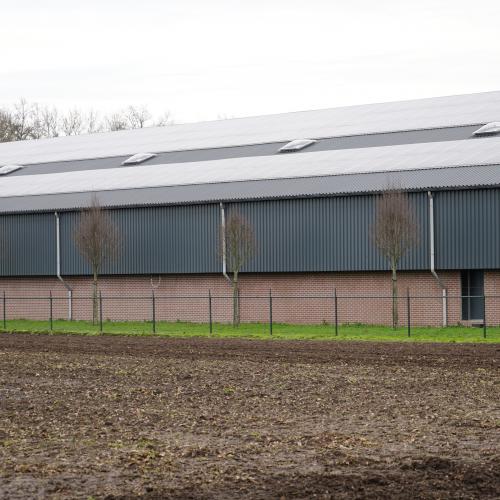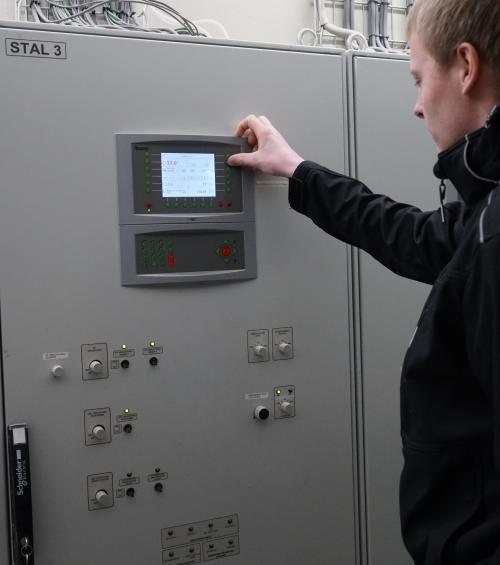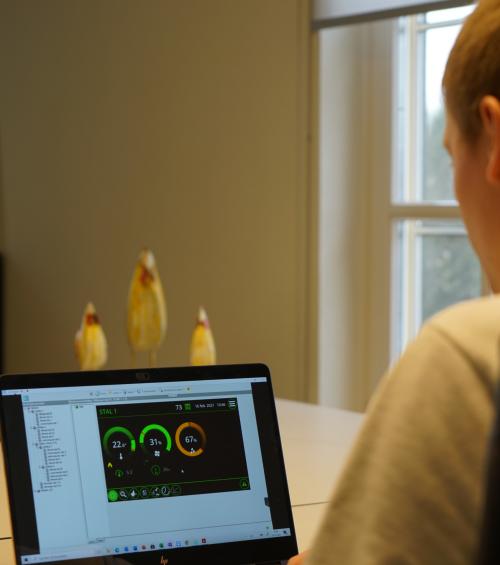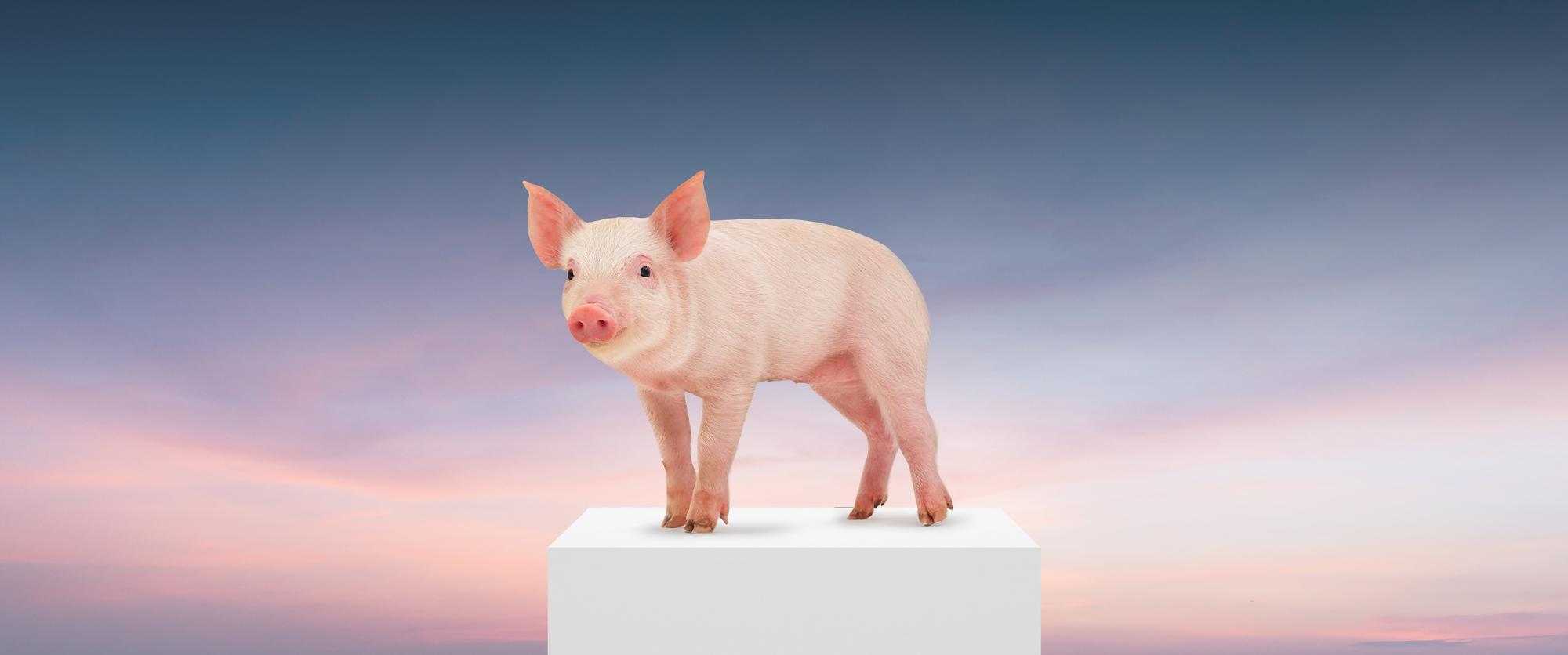Would you like to learn more about the importance of good lighting control in poultry house?
Download our white paper here

“We set the bar very high for ourselves. Our goal is to rank among the top 10 when it comes to animal performance. To stay in the top 10, we must continually innovate to create the optimal environmental conditions for our flocks. The challenge faced by our team on a daily basis is how can we improve or do things differently."
Jos Nelissen is the owner of the family-run Nelissen Pluimvee which he took over from his parents with his wife in 1990. The poultry farm was started in 1956 and now comprises four houses, located on two sites with a total of 130,000 laying hens. In an interview, he describes his cooperation with Fancom and how the new clock control in his Fancom climate computer enables him to perfectly harmonise the light plan in his houses with the needs of the animals.
Jos has been using Fancom's poultry systems since 1986 to automate the processes in his houses. “We wanted even better climate control," is how Jos motivates his choice. “Fancom was already the first to present us with a centralised overview of the entire house and all the parameters we measure." The Fancom computer has very extensive functionality, but Jos and his team have studied it in depth and taken the time to learn how to use all the possibilities to maximum effect. And with results: “The multiple features create stable controls. The heat exchanger control is now fully integrated into the climate control system as well. It's now much easier to align and harmonise all the controls and working is easier. We can introduce warm, dry air into the houses even with a very low ventilation demand. And with widely fluctuating outdoor conditions, we hardly need to make any manual adjustments. We can manage the house climate perfectly under all circumstances. And that's something you see reflected in the performance of the animals. Our animals feel comfortable and contented and therefore perform better".

Another reason to choose Fancom was a desire to create a long-term partnership: “New trends and new developments bubble to the surface every year, and you need the confidence that the company you work with has the ability to lead in innovating and implementing new features." For example, Jos Nelissen has actively contributed to the latest update of the Fancom Lumina 38/F38 poultry computer. Thanks in part to his knowledge and experience, this computer now has a comprehensive and flexible clock control to perfectly synchronise the lighting plan in the house to suit the animals’ needs.
Light is vital for laying hens. It influences when laying hens come into production and dimming light also helps the birds roost for the night calmly and without any stress. In addition, a modern layer house has various types of lighting such as main lighting, lighting in the housing system and variable light intensities to prevent floor eggs. This requires extensive and flexible light control in the climate computer. Jos is satisfied with the new controls:
“We can now set multiple switching moments in one clock, which can be adapted clearly and easily to suit the animals. Each flock is different. You have to take into account the season it was set up in - during high summer when there is more natural light, or in a darker winter period, for example. And you need to adapt the rhythm to what the animals were used to at the rearing facility."


In recent years Jos has also invested in windows that let in natural light, so he can introduce the full spectrum of light into the house, including ultraviolet light. The new controls allow automatic integration of daylight into the overall light control.
“We are increasingly mimicking natural conditions, and you can see the calming effect this has on the animals. Chickens need ultraviolet light to be able to recognise themselves and the system in the house. That is almost impossible to replace with artificial light. Once the daylight windows had been installed, we noticed the chickens could jump up onto the system much faster. Without daylight, they moved with their heads down and had difficulty jumping on to the system. But with daylight their heads came up and they located their place effortlessly in the housing system. This makes it much easier for the animals to become familiarised and accustomed to the house. We let in as much light as possible, even on a cloudy day it's bright enough inside. That's not just good for the chickens but also for the people who have to work in the house.”
The daylight windows are equipped with louvres and there is a lux meter in the house that measures the light intensity so the amount of natural light can be regulated. “This is still work in progress, but my philosophy is that we should let nature do its work as much as possible and that is going well. The chickens really don't mind the occasional cloud in front of the sun. I think we can still learn a lot by studying the natural behaviour of chickens. That is the basic principle. If you bring the natural environment indoors, as we are doing with daylight, you can see that reflected in the behaviour of the animals. We had never imagined that such excellent results would have been possible in the current free-range systems, with so much daylight in the house combined with untrimmed beaks. Our last flocks were still fully feathered 90 weeks after delivery. That's says it all about how well we have done."
Finally, Jos looks back on the intensive cooperation of the last few months in which he helped Fancom with the latest update and we were able to extensively trial the new light plan on his farm. For Fancom, this form of close cooperation with daily practice is vital. This is the only way we can fine-tune and adapt our control computers to match the needs of the user and to respond to new developments such as new housing systems, chickens with outdoor access, daylight in the houses, etc.
But for Jos too, this cooperation offers valuable benefits: “We've had regular contact again recently and I have experienced how important this is. If, like us, you are intensively investigating the control capabilities of the computer, you need support from time to time. For example, in consultation with Fancom, we have tweaked a number of control features and as a result, seen more stable climate control in the house. I am very pleased about that. It's times like that when you feel the full force of the knowledge at Fancom, and that's something we are glad to sound our ideas against and share our experiences with. That's precisely what we need to pursue our goal of producing top quality eggs. Our entire system is configured with this aim in mind, with a good transport system, a good egg packing system and healthy chickens. But it all starts with a good climate."

Forward
thinking
